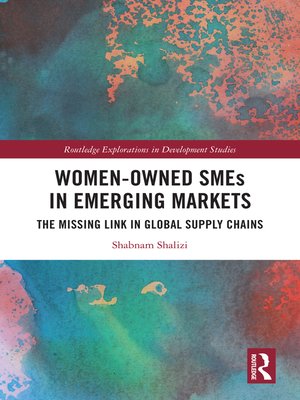Women-Owned SMEs in Emerging Markets
ebook ∣ The Missing Link in Global Supply Chains · Routledge Explorations in Development Studies
By Shabnam Shalizi

Sign up to save your library
With an OverDrive account, you can save your favorite libraries for at-a-glance information about availability. Find out more about OverDrive accounts.
Find this title in Libby, the library reading app by OverDrive.



Search for a digital library with this title
Title found at these libraries:
| Library Name | Distance |
|---|---|
| Loading... |
This book investigates women as business owners in emerging markets, documenting the structural difficulties they face as a result of their seeking access to global supply chains, and demonstrating the ways in which they are rewriting norms and challenging market assumptions.
Although women own an estimated one-third of all small and medium-sized enterprises (SMEs) in emerging markets, they are deeply underrepresented in global supply chains. In what the author refers to as the Women in Trade Deficit, women-owned enterprises earn less than 1% of all money spent on vendors by large corporations and governments worldwide. Drawing on an in-depth empirical investigation of a range of SMEs in Bangladesh, Nigeria, and Sri Lanka, this book investigates how women enter the supply chains of major global firms and multinational corporations and the challenges they face in doing so. Overall, the book argues that these business owners are rewriting norms and rearranging markets through networked enterprises to advance what the author calls prosocial industrialism.
Whilst many studies focus on women at the micro-enterprise or laborer level, this book makes an important contribution to our understanding of their role at the helm of SMEs that trade internationally. As such, it will be of interest to researchers across business studies, economics, sociology, and development studies, and to donor agencies, policymakers, and the global private sector.







